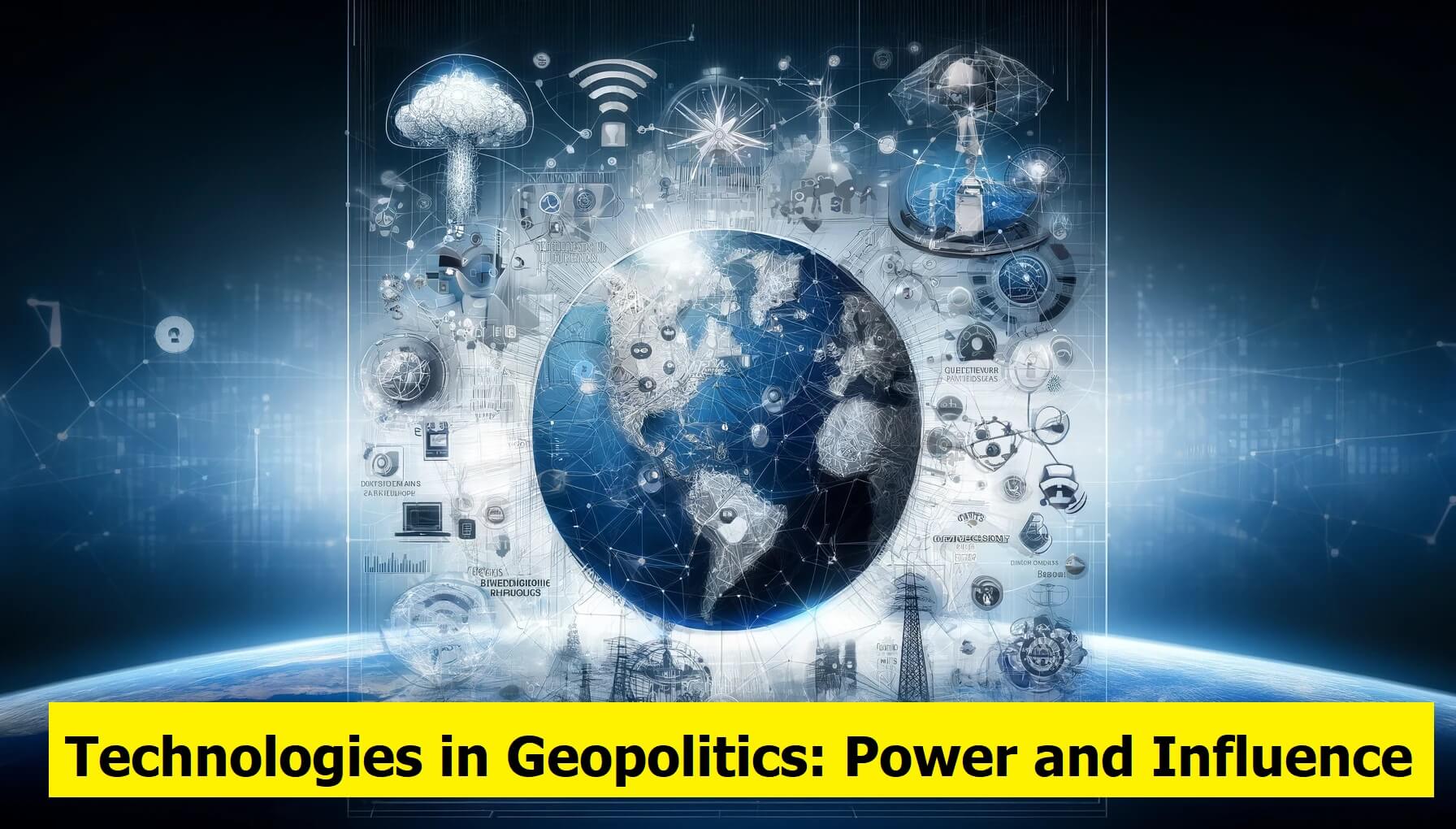
Why Technologies Become Geopolitical
In our interconnected world, technology transcends mere tools or applications; it has become a pivotal element in the chessboard of global geopolitics. As we delve into how technologies shape international relations and national power structures, it is essential to recognize the profound implications these tools harbor for global governance, security, and diplomacy.
The Nexus of Technology and Geopolitical Power
Technology influences geopolitics through various channels—be it economic strength, military prowess, or cultural dominance. This section explores how nations leverage technological innovations to amplify their global influence and exert power over others.
One prominent example is the global race for 5G technology, where countries vie for technological supremacy not just for economic gain but for significant geopolitical leverage. The leader in 5G technology stands to define global standards and control burgeoning markets that could influence a wide array of sectors, from communication to automation. This technological edge translates into increased economic clout and enhanced national security.
Similarly, artificial intelligence (AI) has become a strategic focal point. Governments invest heavily in AI for defense, intelligence, and public administration, recognizing its potential to redefine national security and international diplomatic engagements. The integration of AI in military strategy, for instance, is reshaping power balances, compelling nations to rethink traditional warfare and intelligence tactics.
Cybersecurity further exemplifies this nexus. As nations become increasingly digital, the importance of securing cyber infrastructure cannot be overstated. Cyber attacks have the potential to cripple economies, steal sensitive information, and disrupt government operations, making cybersecurity a critical area of national defense and a tool for asserting geopolitical influence.
Through these examples, it is clear that as technology evolves, so too does its role in shaping global geopolitical landscapes, making the mastery of technological innovations a key element of modern statecraft and international power.
Case Study: The 5G Controversy
-
- Overview: The deployment of 5G technology has become a focal point for major geopolitical confrontations, particularly between the U.S. and China. The competition to establish a dominant 5G network is not just about faster internet speeds but is indicative of a deeper struggle for technological supremacy.
- Impact: Countries leading in 5G technology can dictate standards and control new markets, influencing global economic and security landscapes.
Artificial Intelligence in International Relations
-
- Analysis: AI systems are increasingly being adopted in national defense and intelligence operations, reshaping the strategies in international diplomacy and conflict.
- Expert Insights: As per experts in technology policy, the ethical dimensions of AI in warfare and surveillance are becoming critical in international policy dialogues.
Cybersecurity as a Geopolitical Instrument
-
- Trend Examination: With the rise in cyber-attacks targeting national infrastructure, cybersecurity has escalated from a technical issue to a fundamental aspect of national security.
- Regulatory Responses: Examination of international laws and agreements shaping the global response to cyber threats and the challenges in creating cohesive global standards.
Technological Diplomacy and Global Tech Policy
This segment discusses how countries engage in tech diplomacy to forge international alliances, negotiate technology trade wars, and navigate the complex web of global data regulation.
- International Tech Alliances
- Nations are increasingly forming strategic alliances based on shared technology interests, such as quantum computing and AI, to pool resources and standardize regulations.
- Global Data Regulation
- The push for digital sovereignty illustrates how nations are asserting control over data to protect their citizens and ensure national security, influencing global technology policies.
Emerging Trends and Future Predictions
Looking ahead, this section forecasts how emerging technologies like quantum computing and blockchain could redefine geopolitical boundaries and influence future international policies.
- Quantum Computing: As quantum technologies emerge, the race for quantum supremacy could lead to significant shifts in global power dynamics, potentially leading to a new form of technological cold war.
- Blockchain and Governance: The adoption of blockchain in government operations could lead to more transparent, efficient, and secure public services, challenging traditional forms of governance.
Conclusion:
The relationship between technology and geopolitics is complex and multifaceted. As technologies continue to evolve, so too will their impact on global power structures. Policymakers, academics, and professionals in the tech and security sectors must remain vigilant and informed to navigate this ever-changing landscape.
Technology

